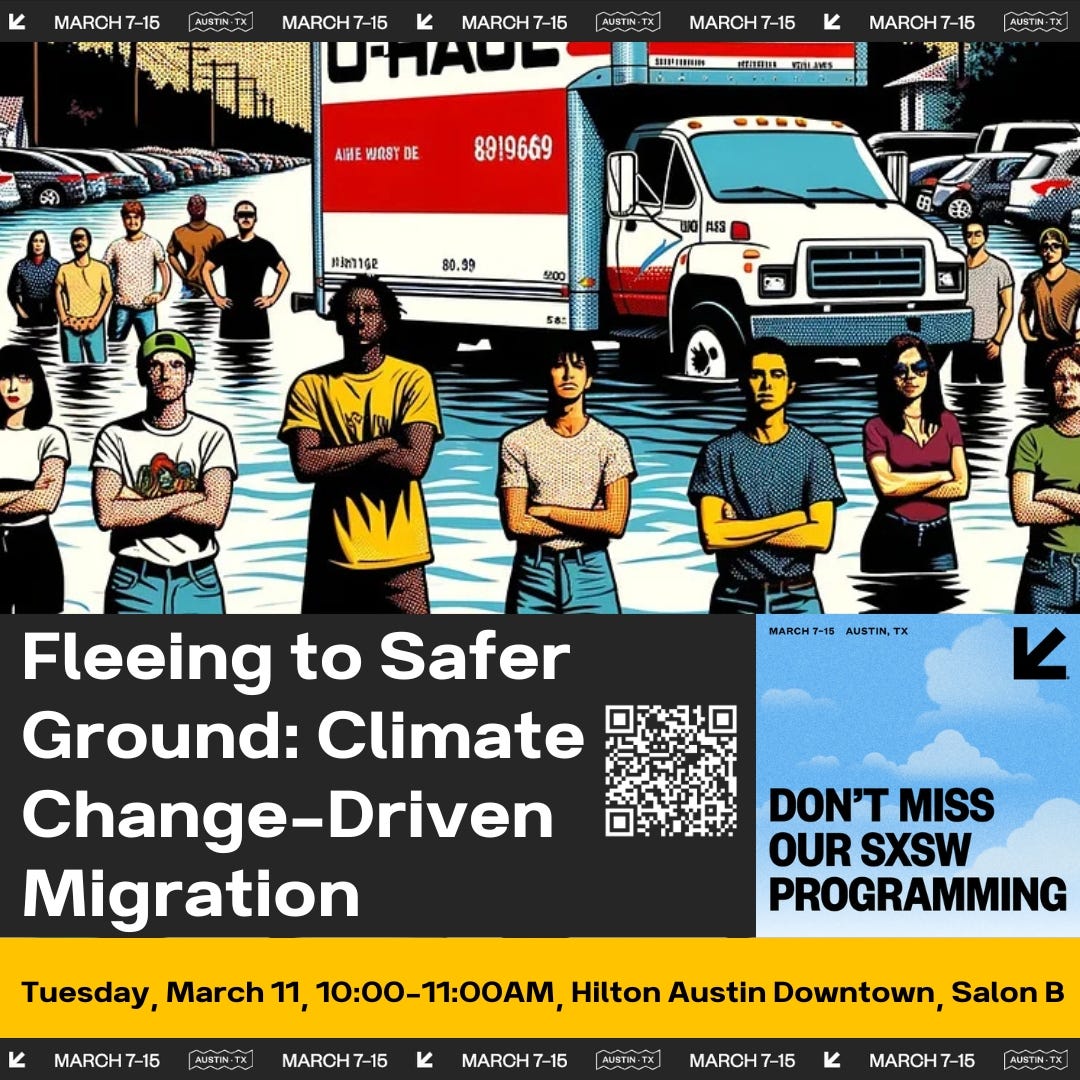The Navigator, Saturday, February 22, 2025
Fighting DOGE, nostalgia for "terrible times," the anointment of Barron Trump, the shelving of thousands of civil rights investigations—and more
On Monday, "50501" protests erupted nationwide, from major cities to rural towns, as thousands declared Presidents Day "No Kings Day," denouncing alleged efforts by Donald Trump and Elon Musk to undermine the government. Later this month, on Feb. 28, activists plan a "24-Hour Economic Blackout," urging a boycott of major retailers like Amazon, Walmart, and Target. Both actions reflect a long tradition of protest and economic resistance—and may signal more to come.
History tells us that when marginalized groups unite and strategically wield their economic and social influence, they can reshape political and economic norms. In ancient Rome, the Secessio Plebis—or "secession of the plebs"—happened when commoners withdrew from the city en masse, refusing to work or fight for the state until their demands were met. These walkouts pressured the ruling elite, or patricians, to grant greater political representation, debt relief and protection against exploitation. The secessio was an early example of labor strikes and mass civil disobedience.
Disrupting economic and political systems has historically forced people in power to negotiate. Social media has amplified this strategy, enabling decentralized, grassroots activism to scale rapidly and operate more effectively.
For those traveling to Austin, Texas, this year for SXSW, we hope you’ll join our session, “Fleeing to Safer Ground: Climate Change-Driven Migration,” where New Rules’ Co-Founders Marcia Stepanek and Bradley Schurman will be sharing actionable insights on how climate risk influences human migration and the challenges and opportunities ahead. It will take place on Tuesday, March 11, at 10 a.m. at the Hilton Austin Downtown, Salon B.
As always, thank you for making us part of your week. Please join the conversation by sharing your thoughts in the comments below.
How Will We Work In A Super-Aged World? (Forbes)
The labor market is undergoing a seismic shift, according to New Rules Media Co-Founder Bradley Schurman, interviewed recently by Forbes contributor Dan Pontefract for an article in the magazine. Schurman, author of Super Age: Decoding Our Demographic Destiny (2022, Harper Collins), says that by 2030, the U.S. will have more people over 65 than under 18. Birth rates have plummeted, life expectancy has increased, and organizations face a talent crunch they are unprepared to solve.
The Watergate-Inspired Data-Privacy Law That’s Being Used to Fight DOGE (WIRED)
Andrew Couts, WIRED’s senior editor of security and investigations, joins global editorial director Katie Drummond to talk about how the 1974 Privacy Act is being used in legal battles against Elon Musk’s Department of Government Efficiency’s efforts to collect massive amounts of sensitive federal data.
How Do Young Men See the World? We Asked Them. (Esquire)
Everyone else agrees they’re struggling. But how do men themselves feel about it? Esquire sat down with 12 “everyday guys” from across America to get their candid opinions—on money, masculinity, Donald Trump—and to find out what’s really on their minds.
“We’ve Been Essentially Muzzled”: Department of Education Halts Thousands of Civil Rights Investigations Under Trump (Pro Publica)
Since Inauguration Day, the Office for Civil Rights has only opened about 20 investigations focused on Trump’s priorities, placing more than 10,000 student complaints related to disability access and sexual and racial harassment on hold.
Why People Feel Nostalgic for Terrible Times (The Atlantic)
Some people miss the early, eerie first few months of the pandemic, when time seemed to have stopped.
The Education —and Anoitment—of Barron Trump (Vanity Fair)
The towering New York University freshman has become a Manhattan curiosity and a national symbol while hardly uttering a public word.
Want a better social life? Try these easy habits. (Vox)
Why you should aim for one meaningful social interaction a day and other strategies for improving your “social biome.”
Fake real estate post stokes fears about the impact of federal cuts on the DC housing market (NBC4)
A post circulating on social media showing dozens of new homes on the market in Northern Virginia is bogus, real estate experts say
Could AI Translate Animal Communication? (The Economist’s Babbage podcast)
Translation is tricky business—not least when your subject belongs to a different species. But as evidence mounts that many animals are capable of rich, complex communication, scientists are trying to bridge the inter-species gap. Already, artificial intelligence has proved a valuable tool.
The New York Times goes all-in on internal AI tools (Semafor)
The New York Times is green-lighting the use of AI for its product and editorial staff, saying that internal tools could eventually write social copy, SEO headlines, and some code—but not the articles.








As always, your reading list is giving me windows into worlds I don't ever see. Thanks!